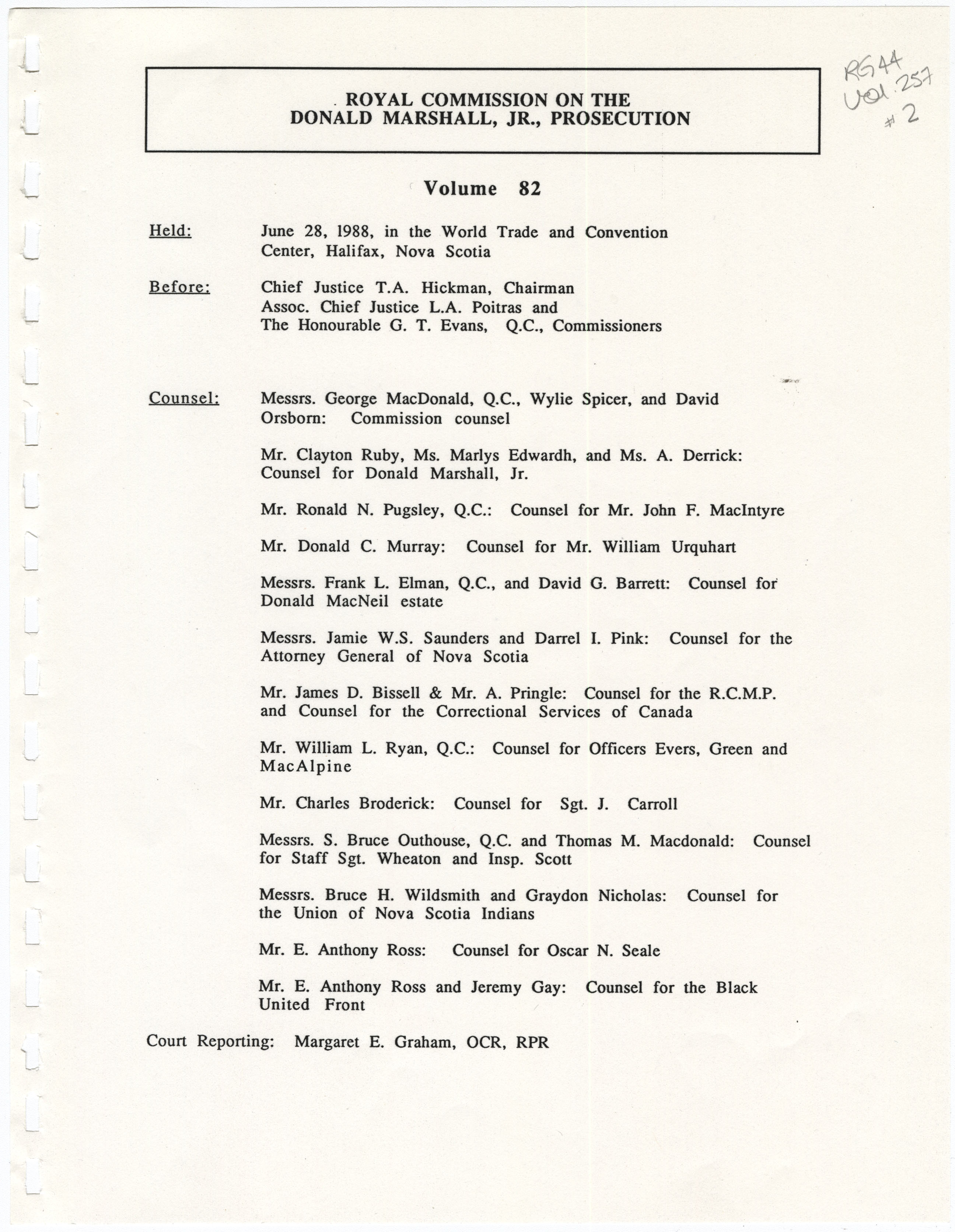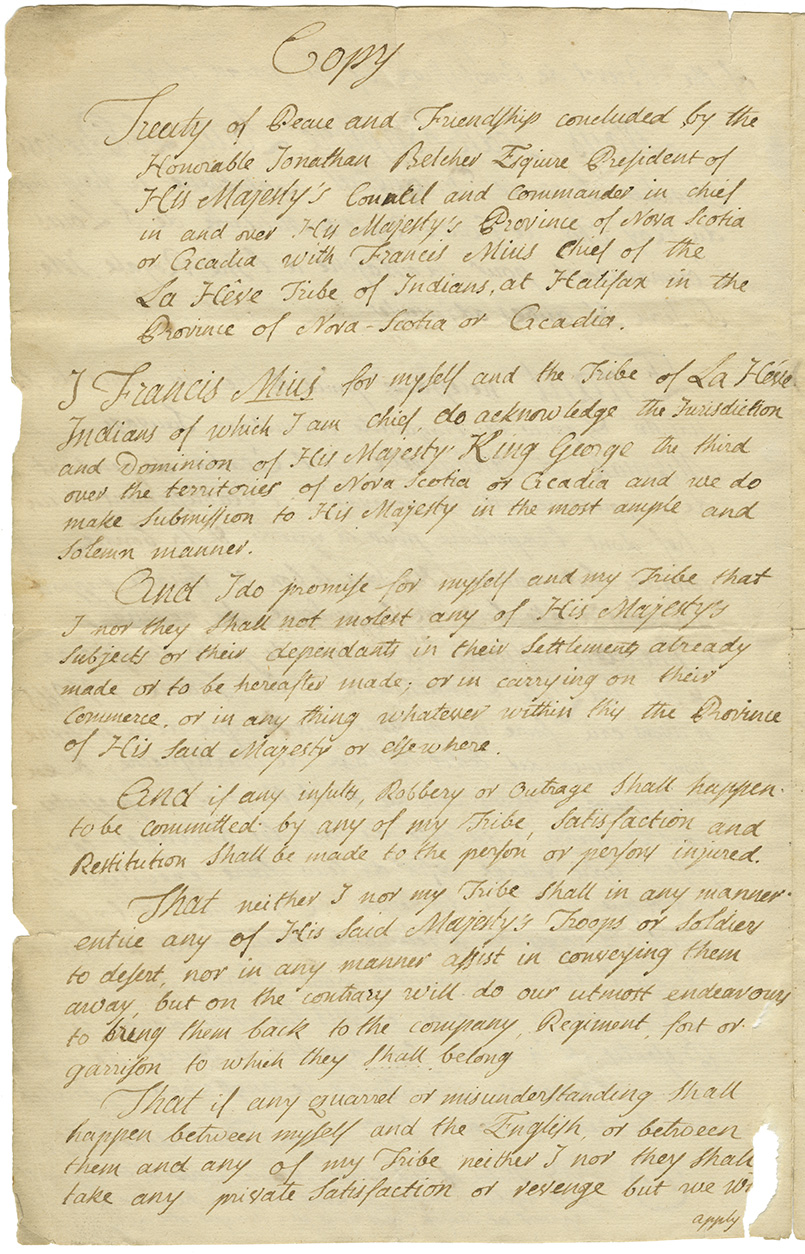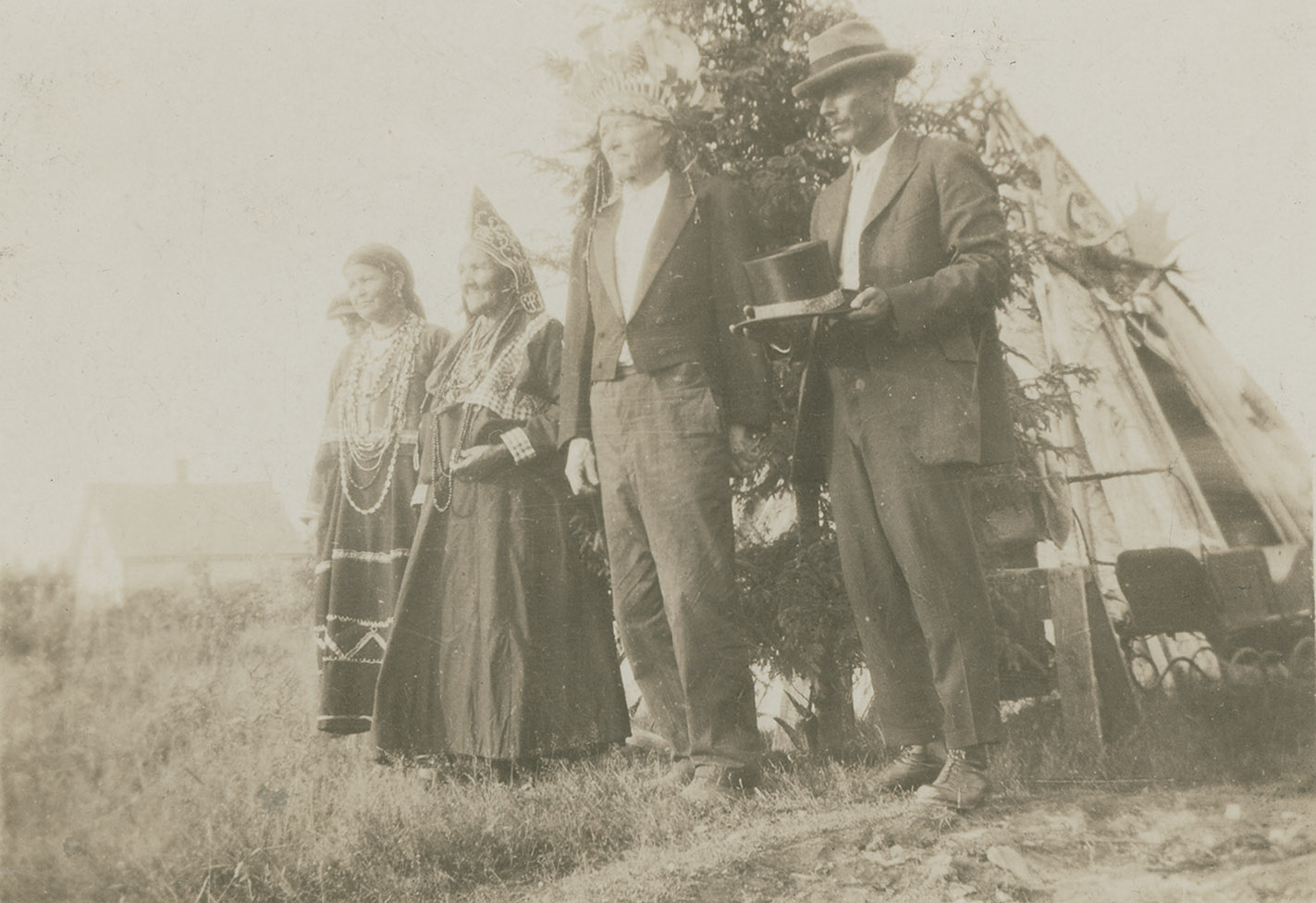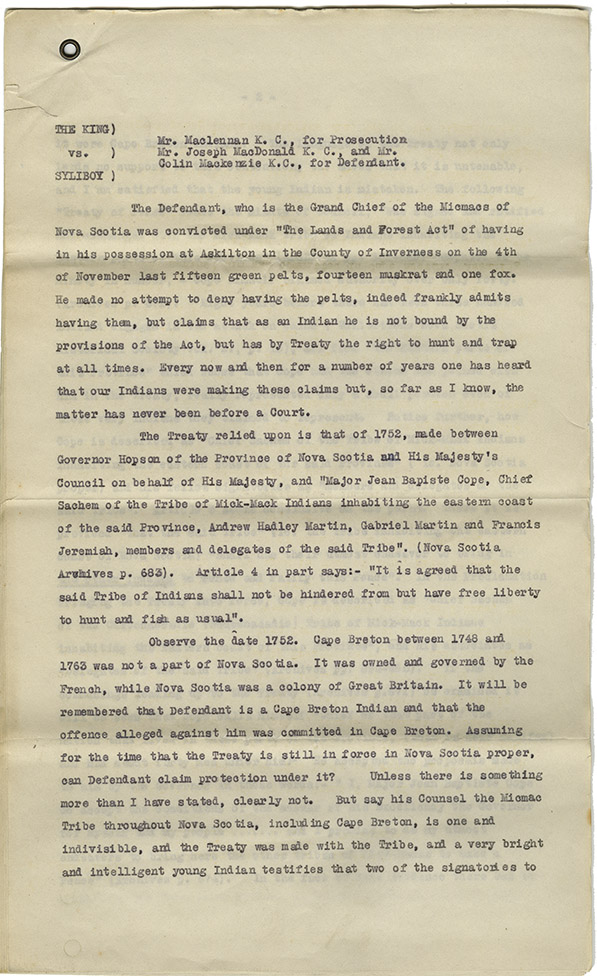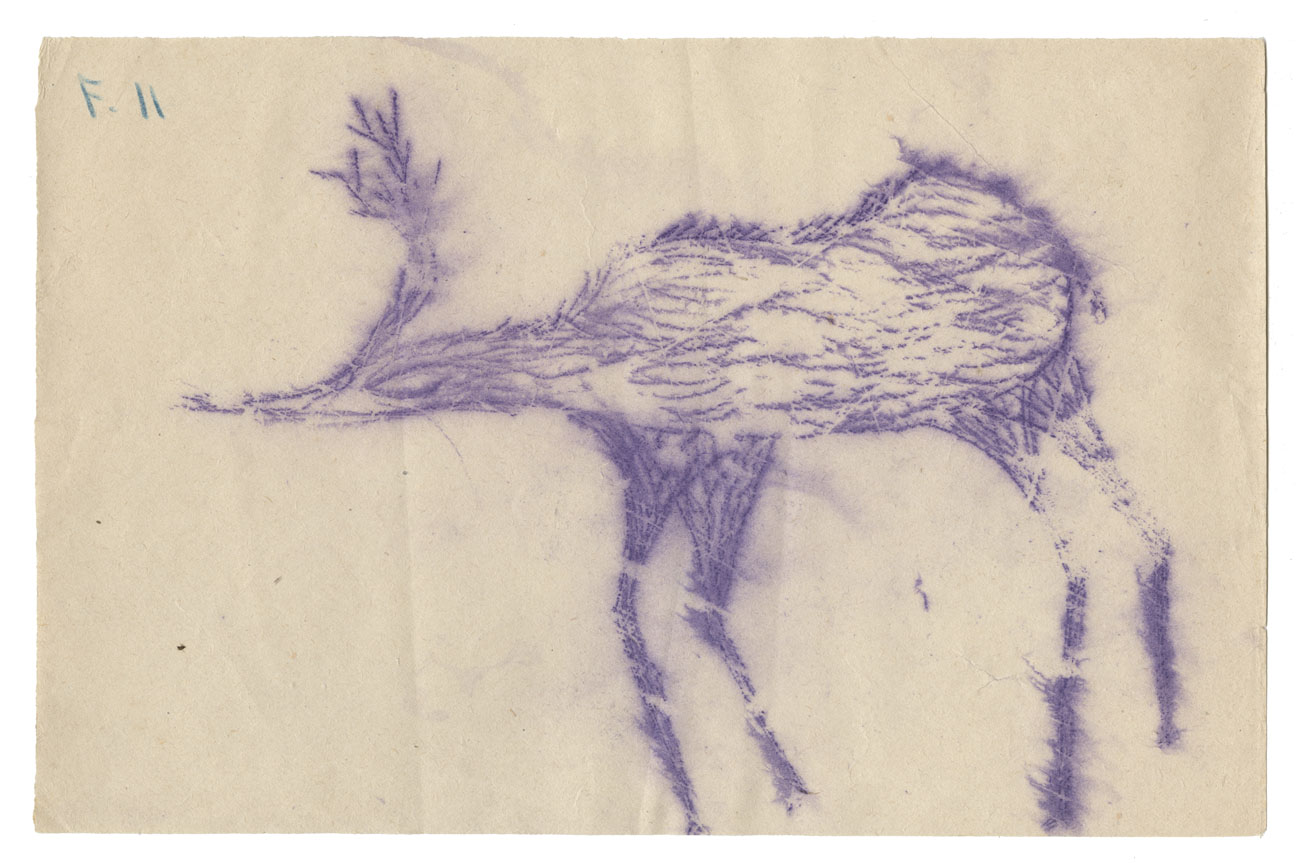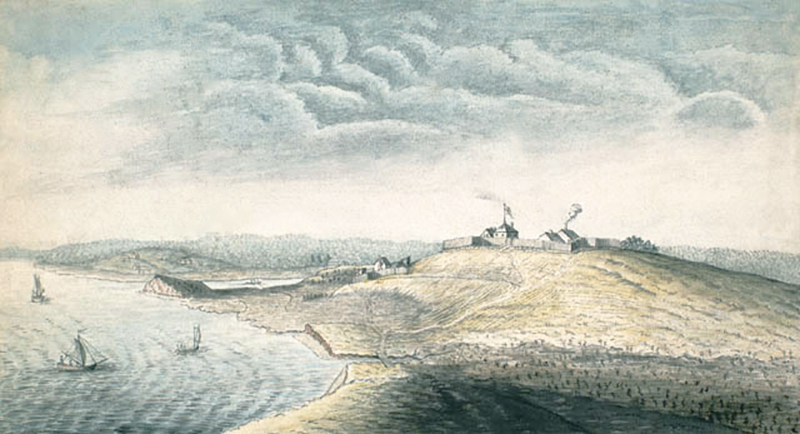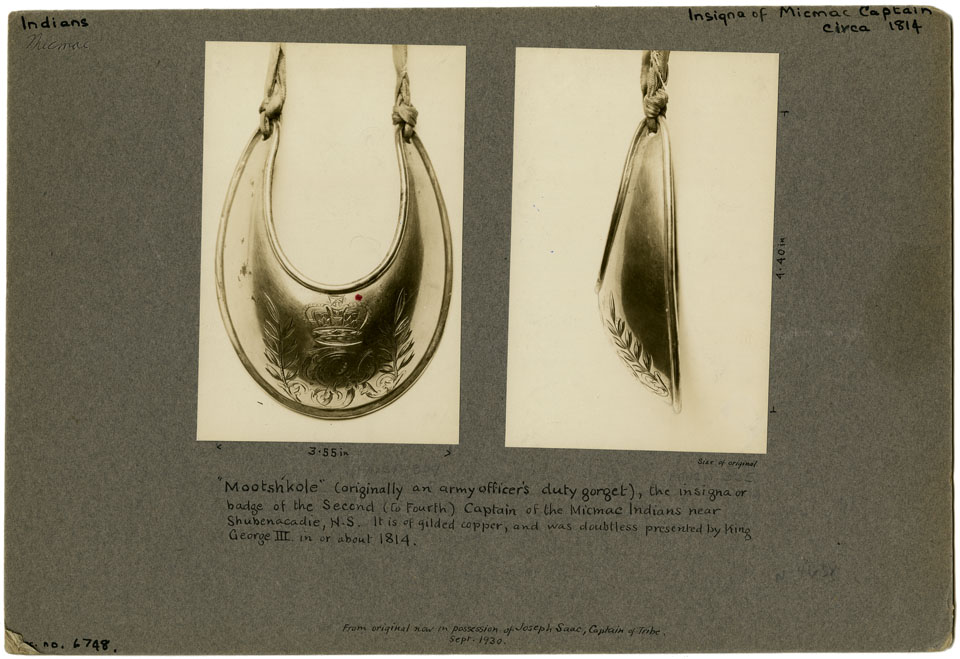Nova Scotia Archives
Virtual Archives and Databases
Royal Commission on the Donald Marshall Jr. Prosecution
Exhibits, witness testimony, and other records offer a window into a justice system unprepared and unwilling to accommodate the legal needs of First Nations and other cultural groups. This collection is vitally important, both for its vindication of wrongfully-convicted Marshall Jr., and for its role in shaping the Canadian and Nova Scotian justice systems we know today.
Treaties of Peace and Friendship
In honour of Treaty Day and Mi’kmaq History Month 2016, the Nova Scotia Archives is pleased to present online, the Peace and Friendship Treaties Collection held at the Archives Building in Halifax. These twelve original documents, 1725-1779, have been freshly digitized with new background information, and are offered in high-resolution format for exploration, download and re-use.
Mi'kmaq Holdings Resource Guide
In honour of Heritage Day 2017 – Mi'kmaq documents and other materials including the Peace and Friendship Treaties as well as 470 newly digitized documents (many available to transcribe). An exhibit with 34 photos are highlighted in Community Gatherings. Genealogical resources for tracing Mi'kmaq ancestry and determining band status. An important resource for anyone interested in Mi'kmaq culture, heritage and traditions throughout Atlantic Canada.
King vs. Sylliboy, 1928
In 1927 Gabriel Sylliboy was arrested near Port Hastings for hunting muskrat and possessing pelts out of season – offences under the Lands and Forests Act. He was subsequently convicted in a Magistrate's Court. He appealed his conviction to the County Court, arguing that as a Mi'kmaq the Treaty of 1752 recognized the right of his people to freely hunt and fish. The appeal was heard in July of 1928 and the documents presented here constitute the case file for the appeal.
George Creed - Mi'kmaq Petroglyphs
In 1887-88, George Creed, the postmaster in South Rawdon – but also a keen amateur ethnologist – spent time in Queens County, where he carefully made some 350 tracings from the Mi'kmaq petroglyphs cut into the rocks at Fairy Lake, Kejimkujik. These petroglyphs record and illustrate the period in history, just after European contact, when the Mi'kmaq were turning from traditional beliefs and old ways to a new faith and new ways.
Isaac Deschamps
Isaac Deschamps was born circa 1722, presumably of Swiss descent, and arrived in Halifax, N.S. in 1749. He was employed by Joshua Mauger and in 1754 he ran Maugher's truckhouse at Pisiquid (Windsor) where he traded with local Acadians and First Nations.
Harry Piers: Museum Maker
The Nova Scotia Archives and the Nova Scotia Museum are pleased to present 'Harry Piers: Museum Maker' – our first jointly-produced virtual exhibit. Come and explore a selection of the earliest items collected by Mr. Piers in his dual capacity as Keeper of the Public Records and Museum Curator. View Harry Piers: Museum Maker on YouTube.
